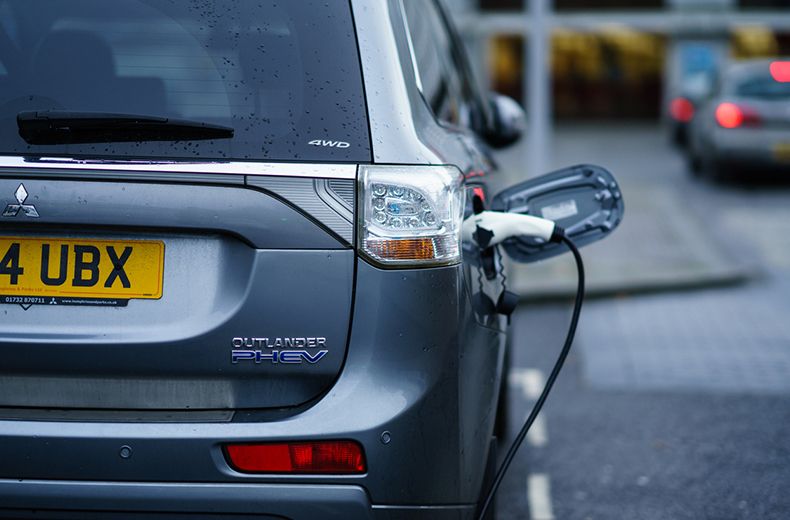The scheme has supported the sale of nearly half a million electric cars across the UK over an 11 year period – at a cost of around £1.4 billion.
Although it has helped with the adoption of EVs, the ending of the funding has led to criticism of the government.
RAC head of policy Nicholas Lyes said: “The UK’s adoption of electric cars is so far impressive but in order to make them accessible to everyone, we need prices to fall - having more on the road is one important way of making this happen, so we're disappointed the Government has chosen to end the grant at this point. If costs remain too high, the ambition of getting most people into electric cars will be stifled."
Battery and hybrid electric vehicles (EVs) now make up more than half of all new cars sold and fully electric car sales have risen by 70% in the last year, now representing 1 in 6 new cars joining UK roads.
The government previously stated that the plug-in car grant was temporary and confirmed funding would continue in decreasing amounts until 2022-23.
All existing applications for the grant will continue to be honoured and where a car has been sold in the two working days before the announcement, but an application for the grant from dealerships has not yet been made, the sale will also still qualify for the grant.
Following the announcement, the government is now focusing funding towards the main barriers to the EV transition, including public charging and supporting the purchase of other road vehicles where the switch to electric requires further development.
They have announced that £300 million in grant funding will now be refocused towards extending plug-in grants to boost sales of plug-in taxis, motorcycles, vans, trucks and wheelchair accessible vehicles.
The government has already committed £1.6 billion to building the UK’s public chargepoint network.
Transport Minister Trudy Harrison said: “Having successfully kickstarted the electric car market, we now want to use plug-in grants to match that success across other vehicle types, from taxis to delivery vans and everything in between, to help make the switch to zero emission travel cheaper and easier.”
- The road to electric – in charts and data
- Electric cars – a definitive guide and tips for buyers
- Electric car charging – how it works and how much it costs
According to the Society of Motor Manufacturers and Traders (SMMT) Nearly three quarters of a million vehicles on the road today can be plugged in, including 720,053 cars, 26,990 vans, 993 buses and 313 trucks.
While electric car uptake is growing rapidly, accounting for around one in five new registrations, plug-ins still only represent around one in 50 cars on the road, demonstrating the scale of the challenge ahead in convincing every driver to make the switch.
After the news was announced by the government, Mike Hawes, SMMT Chief Executive, commented: “The decision to scrap the Plug-in Car grant sends the wrong message to motorists and to an industry which remains committed to Government’s net zero ambition. Whilst we welcome government’s continued support for new electric van, taxi and adapted vehicle buyers, we are now the only major European market to have zero upfront purchase incentives for EV car buyers yet the most ambitious plans for uptake.
“With the sector not yet in recovery, and all manufacturers about to be mandated to sell significantly more EVs than current demand indicates, this decision comes at the worst possible time. If we are to have any chance of hitting targets, government must use these savings and compel massive investment in the charging network, at rapid pace and at a scale beyond anything so far announced.”
Plug-in electric car data
Recent SMMT data revealed that electric car uptake varies across the UK. A third (33.1%) of all plug-in cars are registered in London and the South East, representing 3.0% and 2.6% of all cars in each area.
By contrast, 1.5% of cars in the West Midlands are plug-in electric, 1.9% in Yorkshire and Humberside, and 0.9% in the North East.
Differences in uptake could also be seen across the four British nations, with plug-ins making up 2.2% of cars in England, 1.6% in Scotland, and 0.8% in Wales and Northern Ireland.
However, the majority of plug-in cars are registered to businesses rather than people.
What do you make of today’s announcement? Leave your comment below.

SALE – up to 40% off*
Roadside & Recovery from £5.29 a month*
• Cheaper than AA Price Promise or we’ll beat by 20%^
• We get to most breakdowns in 60 mins or less
• Our patrols fix 4/5 breakdowns on the spot










